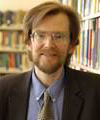Dr. David Holtgrave Appointed Vice Chair of Presidential Advisory Council on HIV/AIDS
Topics
 Dr. David Holtgrave
Dr. David HoltgraveDavid Holtgrave, PhD, professor and chair of the Department of Health, Behavior and Society at the Johns Hopkins Bloomberg School of Public Health, has recently been appointed to the newly created position of Vice Chair of the Presidential Advisory Council on HIV/AIDS (PACHA).
Dr. Holtgrave, who has served on PACHA since 2010, will work closely with PACHA’s chairperson, Nancy Mahon, Senior Vice President, M·A·C Cosmetics and Global Executive Director, M·A·C AIDS FundExit Disclaimer. “We are blessed to have David take on this new leadership role. His expertise, policy insight, strategic vision and problem solving ability will be invaluable," she said.
PACHA provides advice, information and recommendations to the Secretary of HHS and the White House regarding programs and policies intended to improve the U.S. response to the HIV/AIDS epidemic—including to promote effective prevention of HIV and improved delivery of HIV care, treatment and housing services—and to advance research on HIV/AIDS. PACHA also provides recommendations on how to effectively implement the National HIV/AIDS Strategy and monitors implementation of the Strategy. Dr. Holtgrave is one of 24 members who serve on the council, which is comprised of a diverse group of researchers, service providers, and community leaders from around the country, including people living with HIV.“I am deeply honored to accept the appointment as Vice Chair of PACHA,” said Holtgrave. “I look forward to the opportunity to serve the Administration in an expanded advisory capacity and to continue the vitally important work of the council to address the HIV/AIDS epidemic in this country and around the world.”
Dr. Holtgrave’s research has focused on the effectiveness and cost-effectiveness of a variety of HIV prevention interventions – including the provision of housing as a structural HIV/AIDS intervention – and the relationship of the findings of these studies to HIV prevention policy making. He has served on an Institute of Medicine panel charged with recommending methods to improve the public financing and delivery of HIV care in the United States. Prior to joining the faculty at Johns Hopkins, he worked at the Centers for Disease Control and Prevention (CDC) as the Director of the Division of HIV/AIDS Prevention – Intervention Research and Support.